Notebook
-
 Chemistry
ChemistryOne forensic scientist is scraping bones for clues to time of death
The bones of more than 100 cadavers are shedding light on a more precise and reliable way to determine when someone died.
-
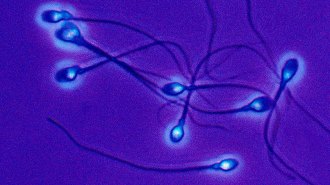 Humans
Humans50 years ago, freezing sperm faced scientific skepticism
In 1972, scientists debated the long-term viability of frozen sperm. Fifty years later, children have been conceived with sperm frozen for decades.
By Aina Abell -
 Science & Society
Science & SocietyNudge theory’s popularity may block insights into improving society
Small interventions that influence people’s behavior can be tested. But the real world requires big, hard-to-measure changes too, scientists say.
By Sujata Gupta -
 Planetary Science
Planetary Science50 years ago, Arecibo got an unprecedented view of Venus’ surface
Over its 57-year lifetime, Arecibo’s radar system measured the mountains around Venus’ middle, studied the textures of many rocky bodies in outer space and more.
-
 Health & Medicine
Health & Medicine50 years ago, researchers thought Americans outgrew marijuana
In the 1970s, it was thought that adults over age 25 may “outgrow” marijuana. Fifty years later, older adults are in on the action.
-
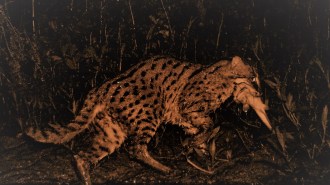 Animals
AnimalsScientists uncover the secret to fishing cats’ hunting success
Volunteers in India have helped to explain how one of the world’s semiaquatic wild cat species hunts.
-
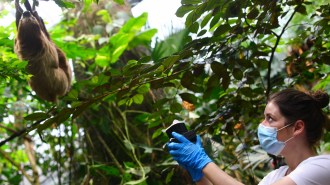 Animals
AnimalsScientists vacuumed animal DNA out of thin air for the first time
The ability to sniff out animals’ airborne genetic material has been on researchers’ wish list for over a decade.
By Jude Coleman -
 Space
Space50 years ago, NASA’s space shuttle program got the green light
For over 30 years, space shuttles helped revolutionize science. Now, NASA is tackling new frontiers with help from commercial spaceflight companies.
-
 Climate
ClimateClimate change communication should focus less on specific numbers
Even if nations don’t meet goals to curb global climate change, any progress is better than none.
-
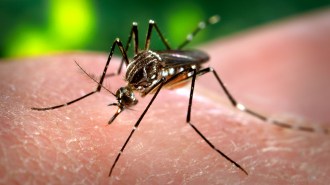 Animals
Animals50 years ago, scientists were genetically modifying mosquitoes
In 1971, scientists turned to genetics to control disease-spreading mosquitoes without DDT. Today, there are a variety of pesticide-free methods.
-
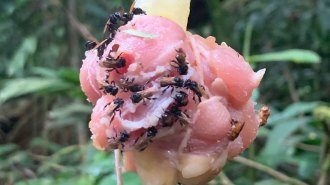 Animals
AnimalsGut bacteria let vulture bees eat rotting flesh without getting sick
Acid-producing bacteria in the gut of vulture bees let these “weirdos of the bee world” safely snack on animal carcasses.
-
 Climate
ClimateClimate change could make Virginia’s Tangier Island uninhabitable by 2051
Tangier Island could be lost to rising seas sooner than previously realized. Whether to save the island or move its residents remains undecided.